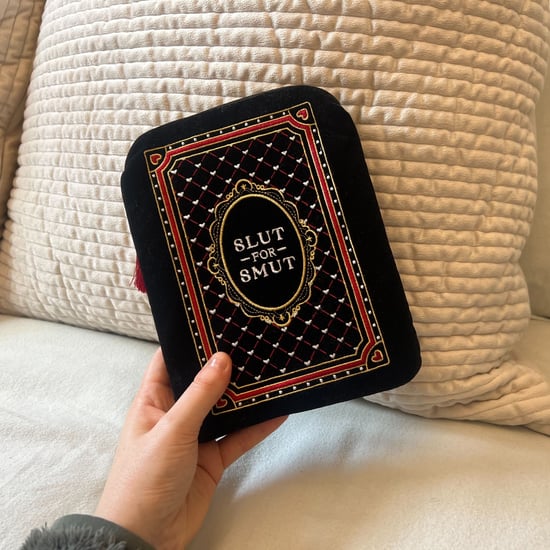Situationships Are Over Because of Roe v. Wade Overturn
The Situationship Is Dead

The following story is a part of POPSUGAR's Sex in a Post-Roe World series, which explores how limited (or nonexistent) abortion access is changing how people approach sex, dating, and relationships.
Prior to the Roe overturn, situationships — the kind of casual romantic or sexual relationship that exists in the space between "friends with benefits" and "in a relationship" — were more popular than ever. Many experts believe their rise could be linked to the infinite amount of options available on dating apps. Why commit to monogamy with one person when you could be one swipe away from a more-perfect match?
Daters were less interested in commitment, and happy to have a partner to support their emotional and physical needs without the "what are we?" conversations. And thus, "situationship" became the label that, ironically, described relationships that didn't have any label at all.
But now that the implications of an unplanned pregnancy could be a lot more complicated thanks to abortion access being restricted in certain parts of the country, singles are saying goodbye to the once-beloved situationship.
In an exclusive survey conducted by POPSUGAR in July 2022, 28 percent of 857 respondents said that in this new, post-Roe era, they'll be less likely to have casual sex — one-night stands, FWBs, f*ck buddies — given the risk of pregnancy with someone they're not committed to. And that, of course, affects situationships, which are casual by definition.

"Situationships are almost always with someone you don't see long-term potential with or wouldn't want to raise a family with," relationship expert Nicole Moore tells POPSUGAR. "The fear of accidentally getting pregnant during a situationship and not being able to get an abortion is definitely enough to make some people forgo situationships altogether."
The survey also found that 26 percent of 763 respondents will now wait longer to have sex with someone they're pursuing a relationship with because of the risk of pregnancy. "People are pulling back from casual sex because there's less of an 'out' with the ban on abortions in many states," says certified sex therapist Heather Shannon, LCPC.
This isn't to say that before Roe was overturned abortion was an easy "out" or birth-control method people were using as a result of having casual sex. For one, contraceptive methods like condoms, birth control pills, and IUDs generally are more accessible than any abortion services — and that was the case even before Roe was overturned. But they also aren't perfect at preventing pregnancy; no contraceptive method is. According to the Guttmacher Institute, 51 percent of abortion patients in 2014 reported that they had used a contraceptive method in the month they became pregnant.
In other words, sh*t happens. But regardless of the circumstances around why someone would need an abortion, everyone should have a right to access one.

But because a situationship hardly ever becomes a life-long partnership, many people may no longer want to risk having PIV sex in these relationships for fear they will be forever linked to someone who may be hot, fun to talk to, and convenient for now, but who ultimately isn't a good match. This means daters — specifically, those with a uterus — will have "higher criteria for who they want to be intimate with," Shannon believes.
So what happens in a world where situationships are dead? In theory, people could fall into relationship patterns that more closely resemble actual relationships than anything casual, including FWBs and situationships. But many people like to date around in order to have a better understanding of what they're looking for in a partner. After all, healthy exploration, including dates, short-term flings, and situationships, have long "been a vital step of the process for many in figuring out what they truly want," Moore says. Others, on the other hand, aren't necessarily looking for a forever partner at all and only want shorter-term flings.
Another option is that we simply see more people take PIV intercourse off the table in casual relationships, and instead, spend more time doing all of the other things that can lead to orgasm — not because this one sex act has any special significance, but because it carries the additional risk of pregnancy at a time when becoming pregnant unintentionally can have such dire consequences.
What's most likely is that both things happen, with some people moving away from casual entanglements altogether, and others changing what the sex they have in these partnerships looks like.
Daters will now have "higher criteria for who they want to be intimate with."
Overall, what's clear from the POPSUGAR survey and the stories we've heard from the people most immediately impacted is that the Roe overturn has done way more than restrict abortion access. The Supreme Court's decision has interfered with people's ability to access health-saving medication and birth control; it's led to doctors delaying life-saving care; it has the potential to impact married LGBTQ+ couples; and it has disproportionately affected the Latinx community.
The fact that the ruling also made people think more deeply about who they want to have sex with (and increased condom sales to boot) may seem like a minor or even inconsequential shift. But it speaks to how far-reaching and pervasive the consequences are — and the trickle-down effects will likely continue.
Some consequences are more positive than others. The end of Roe also led to voters turning out in droves for the midterms and making their voices heard. While no one should have to fight for their essential human rights, it's clear that many people are prepared to — whatever that looks like for them.






